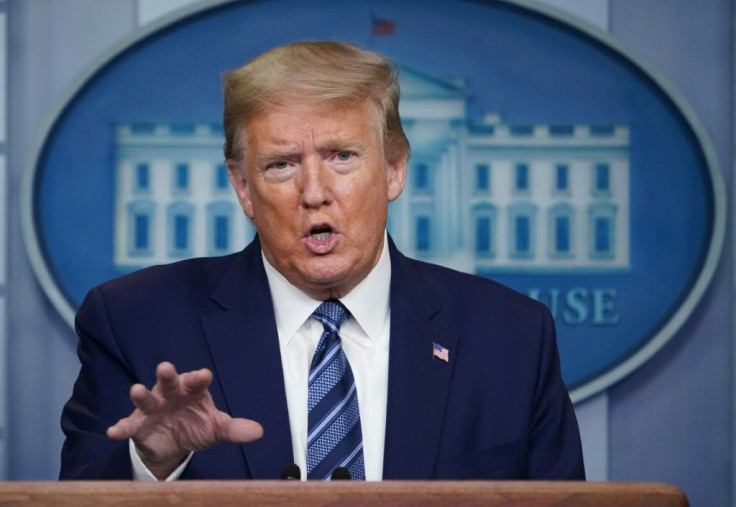Coronavirus Health Officials Pay The Price For Contradicting Trump

KEY POINTS
- Dr. Rick Bright said he was demoted for opposing hydroxychloroquine to treat COVID-19
- Nancy Messonnier was removed from her post in March after warning about the outbreak
- Experts say this is part of a larger trend of Trump squashing dissent among scientists
Three very public events involving top health officials in the Trump administration demonstrate how experts, who hold the responsibility of organizing the fightback against the coronavirus pandemic, face recrimination if they contradict the President's views. Two of those happened just this week.
Up until Tuesday (April 21), Dr. Rick Bright led the Biomedical Advanced Research and Development Authority’s efforts to develop a coronavirus vaccine, but then President Trump suddenly reassigned him to a position with much less responsibility.
In a statement Wednesday, Bright said it was retaliation for “limit[ing] the broad use of chloroquine and hydroxychloroquine, promoted by the administration as a panacea, but which clearly lack scientific merit.” Bright continued, “I am speaking out because to combat this deadly virus, science -- not politics or cronyism -- has to lead the way.”
Robert Redfield, director of the Centers for Disease Control and Prevention, told The Washington Post on Tuesday that protests to “liberate” states with stay-at-home orders were “not helpful,” and that “there’s a possibility that the assault of the virus on our nation next winter will actually be even more difficult than the one we just went through.”
The next morning, Trump tweeted that the “CDC Director was totally misquoted by Fake News @CNN on Covid 19. He will be putting out a statement.” Redfield appeared at the daily White House briefing that day and said he was quoted accurately, but also followed the President’s orders and pushed back on the reporting, saying “ I didn’t say that this was going to be worse. I said it was going to be more difficult and potentially complicated because we’ll have flu and coronavirus circulating at the same time.”
Nancy Messonnier, the CDC’s director of the National Center for Immunization and Respiratory Diseases, was removed from her post early March. Her agency was one of the first to sound the alarm about how Americans need to prepare for “significant disruption” to their lives from a “severe illness.”
The Washington Post published an in-depth report highlighting how these are far from the only examples of the Trump administration attempting to message on behalf of scientists during the coronavirus pandemic. A Post analysis found that at the daily White House press briefings, “since the federal guidelines were announced on March 16, Trump has spoken 63 % of the time, compared with [Dr. Deborah] Birx at 10% and [Dr. Anthony] Fauci at 5%.”
Birx is the White House coronavirus adviser and Fauci the nation's top infectious diseases expert.
The Post spoke to an adviser who is familiar with the White House’s virus response, who said the President “is trying to win a political battle. He’s broken every rule of maintaining public trust, if you’re trying to do crisis communications for the entire public. I’m not sure that is what he’s trying to do.”
Matt Seeger, who has researched crisis and emergency risk communication for the past 35 years at Wayne State University, told the Post that “it’s very clear the public health professionals have been self-censoring their statements. [They’re] being very thoughtful and measured and probably adjusting their statements they don’t run the risk of running afoul of the political agenda. That’s very problematic.”
White House spokesman Judd Deere responded to The Washington Post with a familiar refrain: “Despite the media’s ridiculous efforts to somehow create distance between the president and his top health experts, it is simply fake news.”
© Copyright IBTimes 2025. All rights reserved.





















